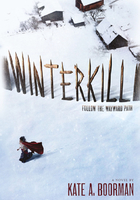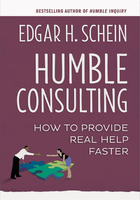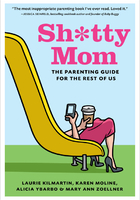"Mr Talbot, sir."
Phillips carried candles in one hand and a lighted lantern in the other.
"In there, Phillips."
"Will you be wanting a light now, sir?"
"Yes—no! Not yet. See here, Phillips. Never mind the candle. Leave the lantern."
"Oh, I couldn't do that, Mr Talbot, sir! You know the passengers isn't supposed to have lanterns but only candles because—"
"Because if candles are overset they douse themselves? Yes, I know. And you know me, don't you? Wait a moment. Now. This buys the lantern off you. I wish to keep a lantern as a memento of the voyage."
An expression of comprehension rearranged Phillips's customary wooden face.
"Sir."
"Hang the lantern on that hook. Turn down the wick."
Of course a ship never sleeps. There was always at least a part of the watch on duty, to say nothing of the officer of the watch and his doggy. I got into my oilskins and made my way through the moonlight to the quarterdeck. Lieutenant Benét was leaning over the forrard rail.
"Come up, Mr Talbot! How do you like this wind? It is bustling us along capitally, is it not?"
"How does the ship like it?"
"She is making more water, of course. That is to be expected. I have been thinking. We ought to rig up some kind of windmill to pump her out."
"Oh no! Not again! Do not terrify us with some new contrivance! Dragropes, ironwork, red-hot rods—Have a care of us, Mr Benét. We are precious!"
Mr Benét tore off his oilskin headgear and spread his arms wide.
"Look about you, Mr Talbot! Is the view not magnificent? The moonlight on these moving waters, the silvered clouds, the unguessable distances up there—those brilliant bodies sparkling above us all! Where is your poetry? Does not the danger, the fear we all feel, give a keener edge to this intoxicating delight?"
"If it comes to that, where is your poetry? In days past you have been only too anxious to stuff it down my throat!"
"You are a severe critic. Then take a utilitarian view. This moonlight means that we may well have a clear horizon at dawn and take helpful star sights."
"I thought there was some difficulty over the navigation—erratic chronometers or something."
"You do pick about, sir, do you not? But at least we may find our latitude, which is nearly half the battle though not quite."
"Is that Mr Willis there? I hope you are recovered, lad. Mr Benét—cannot Mr Willis assist you in navigation?"
"I take that as a pleasantry, sir. Will you excuse me now? I am occupied with an Ode to Nature, a subject of such amplitude and depth I can scarcely get into it—or out of it!"
"Better that than sink us out of hand."
"I suppose you are talking about the foremast. We shall commence the operation when we have enough charcoal and when this sea has gone down."
At this point the odd young man shook his long locks about his face and orated:
"Spirit of Nature—"
"Are you sure, Mr Benét? The last time—no, the time before that—it was Spirit of woman—you are thrifty."
Mr Benét ignored me.
"Spirit of Nature, warm or hot or cold. Solidity—"
"No, no, Mr Benét! I am unworthy of the treat—as is Mr Willis! Allow me to detach Mr Willis from you. He speaks prose."
"Take him. Do what you like with him. Oblige me by returning to me what is left. One never knows what will prove useful."
Willis followed me sullenly enough, up to the poop.
"Well, Mr Willis. Are you quite recovered?"
"I'm deaf in me right earhole where the captain clouted me. And if anyone tries to get me up a mast he'll have to carry me up screaming."
"Good God, lad, your voice has broken! I suppose I should congratulate you. Not climb the mast again? Where's your spirit, lad?"
"What's that to you? It's my business not yours and I'm minding it."
"I'd be obliged for a little more courtesy from you, young man!"
"Why? You're a passenger. What in the Navy we calls a 'pig'. I don't have to take lip from you. Mr Askew, the gunner, said so. 'They're passengers,' he said, 'nothing more. This ain't a company ship,' he said, 'and you need pay no attention to them, not even when they're as high in the instep as Lord Talbot,' he said."
"I'll still require a little civility from you, Mr Willis, on the grounds that I'm older than you if nothing else. I'm sorry to hear that you were deafened but guess that the faculty will return to you. Good Heavens! Young Tommy was a bit lopsided after I cuffed him. Boys must be educated, you know! We all suffer! I doubt there's a schoolboy or midshipman in the world who has not some temporary derangement of his faculties in one department or another. That's how we are made, young fellow, and you should be grateful!"
"Well, I'm not. I wish I was home. And I would be if Dad didn't have an account with one of the managers in the docks and wished to make a gentleman of me. I'd still be serving sugar and happy with the tally wenches in the storerooms. Now the war's over, they'll have to decommission this rotting old lump of wood and then you won't see my arse for dust."
The moon ducked into a cloud and by contrast the night seemed dark. Mr Benét sang out from the quarterdeck below us.
"Mr Willis, oblige me by having the quarter lanterns turned up. When you've done that, you can tell me what happens at a half hour before sunrise."
"Aye aye, sir. Bosun's mate—"
I twitched Willis by the sleeve and murmured to him.
"Half an hour before sunrise is the beginning of Nautical Twilight."
"Well, I know that! Did you think I was stupid?"
Clearly the boy was proof against the advances of social amiability. I was about to dismiss him, therefore, when a positive party of men came to the quarterdeck. Charles was with them. They brought a considerable quantity of gear up to the poop which seemed to include a sail triced up to a heavy yard, an enormous block of iron which needed three men to carry it, and coils of heavy rope.
"Edmund! You are not yet in your bunk!"
"Evidently. Do you never stop working? What is all this?"
"It is a sea anchor."
"This is new to me."
"In extremely heavy weather a ship may ride to such an anchor—"
"But this is our stern!"
"Our circumstances are unusual. That is all. We may need to stream the anchor over the stern to check her way and ensure that she does not drive herself under. Oh, of course, not in this weather—it is moderating! But farther south, where the really heavy weather is—it is a precaution."
The men were tricing the gear to the rails of the poop.
"The captain's orders?"
"No. I have sufficient authority for this myself. Mine is an ancient profession, you see, and the duties defined well enough. But the time is nigh on six bells in the first—Why are you not in your bunk?"
"I—explanations are tedious! I am happy in my dry clothes and there was moonlight, to say nothing of a slight decrease in our motion—and so forth."
Charles looked closely into my face.
"You have moved back to the passenger accommodation?"
"Yes."
Charles nodded and turned to his men. He went round, as I saw, and personally checked the security of the lashing that held all this heavy gear ready for use. If care and forethought could secure our survival he would provide it! I had a sudden awareness of the two of them, Benét and Charles, the one brilliantly putting us at risk, the other soberly and constantly taking care!
Charles spoke again.
"Very well, Robinson. Carry on."
He turned to me.
"Are you going down?"
"Are not you?"
"Oh, I have more work to do. I suppose it will be the middle before I turn in."
"Well then—yes, I will go down. Good night, Charles."
I made my reluctant way down to the lobby. There was now a lantern fixed to the mizzenmast just above the copy of the captain's standing orders, in its glass-fronted case. Someone had left two huge piles of rope beneath it. I opened the door of my hutch and stepped inside. By holding it open I had enough light from the lantern in the lobby to allow me to find my way round. I fumbled in the top drawer, got out my tinderbox and contrived to light the lantern I had bought from Phillips. I shut the door and sat in my canvas chair. I have to confess that already I was feeling something like one feels when bracing oneself to leap into cold water—very cold water. I stripped off my oilskins and my seaboots more slowly than an ancient. I remember bending to my boots as if the effort were painful and the business impossibly long. But at last I was in my "slops". There was still a way of postponing the unpleasant moment. I went to our office of necessity on the starboard side, turned up the blue bud of the oil lamp fixed to the bulkhead, adjusted my trowsers and sat on the nearer of our two holes to the door. Scarcely had I settled myself when the door opened and a petty officer of huge dimensions edged himself in.
"Well, damn my soul!"
"Sorry, sir!"
"Get out!"
"First lieutenant's orders, sir."
The man inserted a rope's end into the farther hole and proceeded to pay it out. I pulled up my trowsers in a rage, buckled the belt and flung myself out. There were more seamen in the lobby. A rope was creeping from the pile past my feet. Another rope was creeping in a like manner into the "female" offices of necessity on the larboard quarter. The place had gone mad. A young seaman, clad as I was in nothing but slops, came quickly out of the larboard office and ran to Miss Granham's door! This was the outside edge of enough! I got to him in a stride or two and had him by the shoulder.
"No, you don't, my lad!"
I spun him round—good God! It was Miss Granham! Her face, even in the dim light from the lantern, was scarlet.
"Let me go, sir, at once, sir!"
"Miss Granham!"
My hand had sprung from her thin shoulder as if it had touched a snake. An unnoticed heave caught me off balance. Miss Granham grabbed the knob of her door handle. I somersaulted backwards and was only saved from mortal injury by those same coils of rope which though diminished were still enough to break my fall. I was on my knees and scrabbled back towards her.
"Pray, Miss Granham—pray, Miss Granham—forgive me—I thought you was a seaman who intended you some harm—allow me—I will close your—"
"I cannot close it myself, Mr Talbot, while you have your hand on the sill. You have an uncommon knack of falling about, sir! Far be it from me to offer advice—"
"I do not hurt myself on these occasions, ma'am. But I should value your advice on anything."
She paused, her back to me, her door half-open.
"Sarcasm, Mr Talbot?"
The fall had warmed my temper.
"Why am I always misunderstood?"
She turned back. I continued.
"You do not comment, ma'am. During this voyage, people's opinions of their associates and companions have been modified—must have been—modified! That is as true of me as of anyone. What I said was a simple expression of the truth of—of my respect and for your—your—"
"My years, young man?"
She had swung round completely to face me. In the dim light the ravages of time on her handsome face were not visible. She was smiling and a lock of hair had escaped from the scarf in which the rest was confined and lay across her face. She put it up, and some trick of the half-light made her look as young as I, if not younger! My mouth opened and shut. I swallowed.
"No, ma'am."
"Let us be acquainted all over again then, Mr Talbot. Indeed, it falls pat. It would perhaps make you less indifferent to where and how you fall—Now, do not pucker up, sir! Hear me out! You may take more care of yourself if you see what the result of a fall can be. Mr Prettiman wishes to see you. I—the fact is, I recommended him to ask someone else. I see that perhaps I was wrong."
I believe I laughed.
"Mr Prettiman wishes to see me? Good God!"
"So, if you agree, I will call you to him tomorrow morning."
"I do agree, ma'am. Nothing would give me greater pleasure!"
The lock of hair had fallen once again. She put it up, frowning.
"Why do you say that, Mr Talbot? Is it the kind of remark you scatter among the members of my sex?"
I made a gesture of dissent. But quickly the smile returned.
"You do not answer, Mr Talbot. Nor should you. You find me minatory. I see the thought which is forming at the back of your mind, 'Once a governess, always a governess.' I was at fault, sir, and curtsey as you observe like the veriest milkmaid."
With that she closed the door. I stayed where I was, holding on to the rail, and I was bemused. There was no doubt about it. Miss Granham had the capacity to reduce a person to his constituent parts, apparently without trying! But we were—she had said so!—acquaintances once more. I do not believe myself quarrelsome and the change filled me with unusual relief and pleasure. I went to the entry to the waist and looked out. The deck was moon-drenched, white. Those stars that the moon had not quenched swung in great curves through the rigging like silver bees. I stared up at them until I was dizzy. I blinked and looked down. Men were coming aft, working their way along a bouncing lifeline, for they carried a heavy burden which seemed to make them unhandy. They laboured up to the quarterdeck with what appeared to be the body of some recently killed animal and large at that. Charles came hurrying along, unburdened, did not see me and went rapidly up the stairs after the men. I turned away and went into my hutch and shut the door behind me. I looked at the freshly made-up bunk with disfavour. There was no doubt about it. Coming back to this hutch was going to be a trial. It was like the time when I was a boy riding by the churchyard in the dusk on a pony which took me indifferently too near the graves. So now. However I had supposed the world and human life to be arranged, I found an air, an atmosphere in this hutch to which I had condemned myself! I seemed to breathe unease. True, compared with the light of the candle to which I was accustomed a degree of brilliance blazed from my oil lamp, which hung steady by the wall, while the wall moved and shadows drawn in black ink raced over me as the ship moved under us. I turned down the wick until only a glimmer of light was left. I told myself that I would not undress for a while but wait until familiarity had made the place a little more mine than—theirs. Is not a cure for a burnt finger to hold it next to a fire so that the heat is drawn out? Then Colley had sat here. His elbow, pen, inkwell, sander—here he had known the extremes of dread and sorrow, of humiliation, mortification—experience of a misery beyond the power of my imagination! If that misery, that whirlpool of human suffering had drained away without trace, as my reason told me, why suddenly was there a winter on my skin? Why was this cabin different from the last time I had slept here? I came up from that state, muttering something about a poor boy who had too much sensibility—or in other words too much blue funk! That made me grin but with what must have been little more than a grimace. To "share the common lot of the other passengers who would one day be part of my care"! That was a noble sentiment. I found myself speaking out loud.
"In future, my boy, avoid noble sentiments. They are like drawing a card blind. You may get anything from the joker to the—"
Nevertheless I am a rational man.
The day had been long. Sleep ought to have been easy. Yet I did not chuse to throw off my garments and get at once into the bunk. A naked man is defenceless. He cannot run naked out onto a moon-drenched deck. Not unless he is delirious. Well, thought I, I will do myself the kindness of going little by little. I lay down, fully dressed in my slops, on the coverlet of the bunk. I lay on my back. The eyebolt was inches from my face. I shut my eyes but was provoked by the slight intimations of light and shadow passing over them. I opened my eyes, therefore, and determining to ignore the eyebolt, focused my eyes on the white-painted deckhead. I found myself examining in detail the wounded underside of a deckbeam, a hole with a pointed thing in the bottom.
I turned over and lay on my face, but the roll of the ship and the occasional pitch made me lurch uncomfortably. I fumbled for the side of the bunk with one hand and at the side of the ship with the other. My fingers took hold. It was the eyebolt, of course. The hair of my head sprang erect. There was an instant in which I might have flung myself from the bunk and rushed away to find Charles or someone, anyone warm and living who breathed and spoke! Yet in that fearful instant I made up my mind and stayed where I was, the fierceness of my clutch making my whole body tremble. Eyes shut, I stayed there, in the very position of the dying man, and was as cold as he.
The change was gradual. The petrifaction of fear diminished into unease, then into a greyness of consent. Thus it had been. Thus it was.
There was a moan from somewhere, from Prettiman in his bunk. I let go the eyebolt and turned over on my back. The wounded deckbeam had less to say to me. I shut my eyes.
I did not experience the passage from waking to sleeping. But it seems that at some point before the coming of the light I must have fallen into a kind of sleep or trance or place.
He was saying something. His voice was far away. A familiar voice, choked with sobbing. I could not place the voice but knew I must. Who in the name of God? I was in a place lit by a savage light which leapt and sank, again and again. The voice drew nearer.
"You could have saved us."
The voice was my own voice. I was awake, the flame was leaping and sinking behind the glass of the lantern. I turned it out and lay back, waiting for the dawn.















